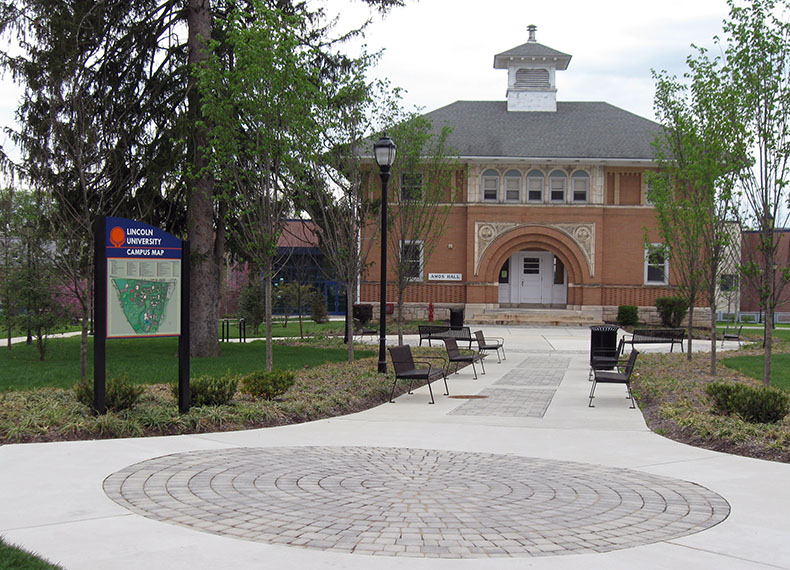
Lincoln University, Amos Hall
Lincoln University
History
Founded in 1854 as Ashmun Institute, Lincoln University of Pennsylvania was originally intended to provide higher education in the arts and sciences for male youth of African descent.
In 1866, the institute was renamed Lincoln University after President Abraham Lincoln and opened its doors to admit women students in 1952.
A prominent university since its inception, Lincoln graduated approximately 20 percent of the Black physicians and more than 10 percent of the Black attorneys in the United States during the first one hundred years of its existence.
Academic Merit
Lincoln’s approximately 2,000 students are offered academic programs in undergraduate study in the arts, and sciences as well as graduate programs in human services, reading, education, mathematics, and administration. Programs of study are:
Accounting
Anthropology
Biochemistry and Molecular Biology
Biology
Black Studies
Chemistry
Computer Science
Criminal Justice
Economics
Engineering Science
English Liberal Arts
Entrepreneurial Studies
Environmental Science
Finance
Foreign Languages
Health Science
History
Information Technology
International Relations
Management
Mass Communications
Mathematics
Music
Nursing
Pan-Africana Studies
Philosophy
Physics
Political Science
Pre-Law
Psychology
Religion
Sociology
Visual Arts
Campus Life
Located in southern Chester County, Pennsylvania, Lincoln is surrounded by rolling farmlands and wooded hilltops 45 miles southwest of Philadelphia, 15 miles northwest of Newark, Delaware, 25 miles west of Wilmington, Delaware, and 55 miles north of Baltimore, Maryland.
Students live, study, and socialize among eighteen residence halls, a student union building with a dining hall, and many other modern facilities including:
• Manuel Rivero Hall, which houses an Olympic-size swimming pool and a bowling alley
• Harold Grim Hall, the Life Science Building; Ware Center, dedicated to the fine arts
• Wright Hall, a learning resource center
• John Miller Dickey Hall computer center and humanities complex
• Living and Learning Center
Many Lincoln alumni have gone on to become prominent leaders or celebrities, including Thurgood Marshall, Langston Hughes, and Roscoe Lee Browne. Many other alumni have headed over 35 colleges and universities and served as United States ambassadors or mission chiefs, federal, state, and municipal judges, mayors, and city managers.
ADDRESS: 1570 Baltimore Pike, Lincoln University, PA MAP
PHONE: 610-932-8300
WEBSITE: https://www.lincoln.edu
